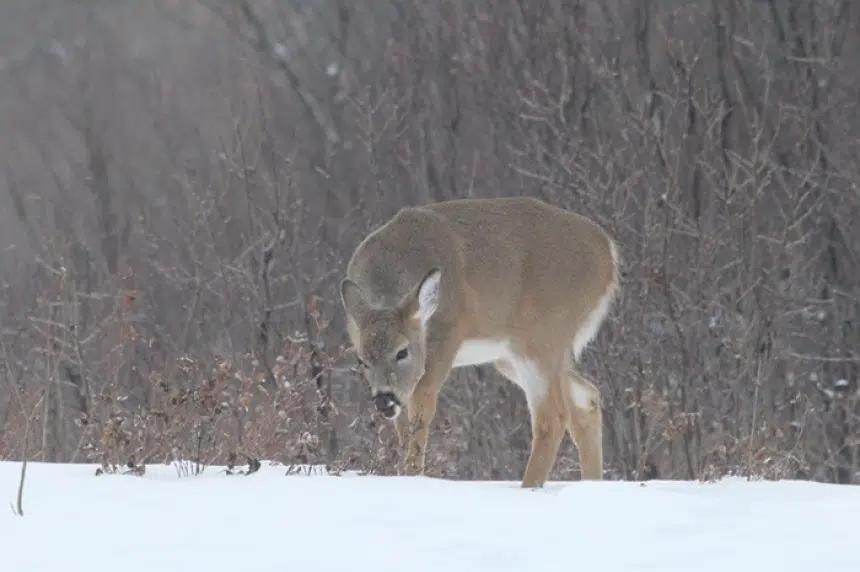You may be doing more harm than good if you’re feeding Saskatchewan wildlife.
It appears people might be worried about the welfare of wildlife during extreme cold, high wind chill values and snow storms.
In a news release Thursday, the Ministry of Environment said people have been calling wanting to feed deer in areas of Saskatchewan.
The ministry is advising against it, and said doing so is detrimental to deer populations.
Deer have natural defences against the weather such as a thick winter coat, fat reserves, a reduced metabolic rate and sedentary behaviour.
The ministry said when deer eat food that isn’t a part of their normal winter diet, such as hay, they can’t digest it properly.
As a result, they might die from starvation despite having a full stomach.
Carbohydrate-rich food sources, such as grains provided as emergency dietary supplements, can also be fatal.
Feeding wildlife in the winter can have other negative consequences such as causing animals to group together, drawing them in from long distances and away from good winter cover, along with increased predation and disease concerns.
A deer that is in good health can fast for several weeks without suffering any harmful effects.
The ministry said one of the ways Saskatchewan residents can support deer populations is by ensuring larger blocks of tree cover, such as aspen bluffs, remain intact.







